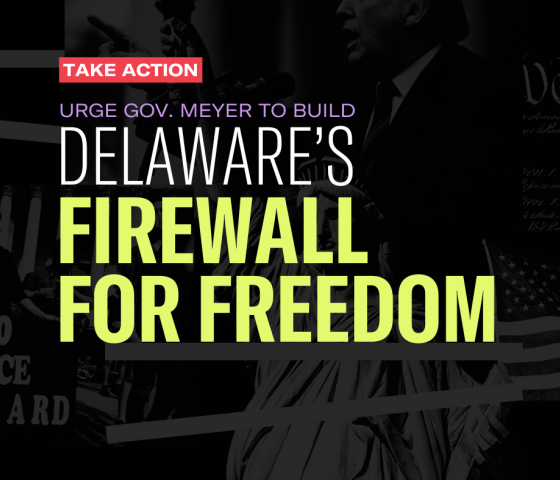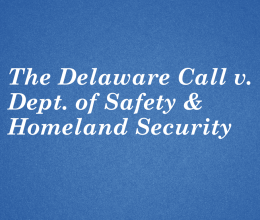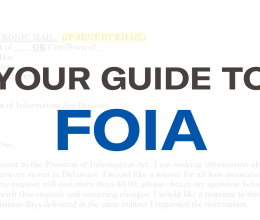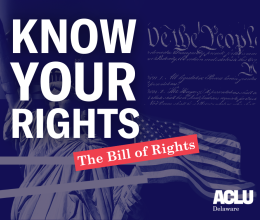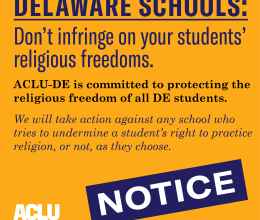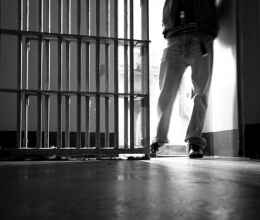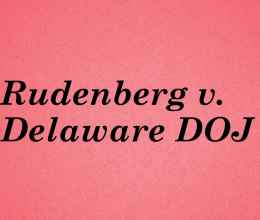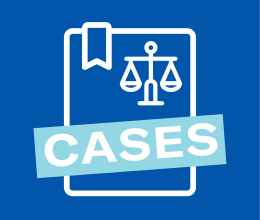[This first appeared in The News Journal on May 21, 2012. Written by Alan Garfield, ACLU of Delaware Board Member. Reprinted with permission. ]
What should happen when a law conflicts with someone’s religious practice? Should the person be exempted from the law? Or should the person have to obey like everyone else?
That’s the issue currently raised by Catholic employers who say they can’t abide the Obama administration’s mandate that employer health care plans cover contraceptive services. These employers say they want to provide their employees with health insurance. Their religion just forbids them from funding birth control.
The First Amendment’s Free Exercise Clause seems to provide a ready answer to this dilemma. It says that Congress shall make “no law” prohibiting the free exercise of religion. So doesn’t that mean the Catholic employers are entitled to an exemption?
Perhaps. But the Supreme Court has never interpreted the Free Exercise Clause so literally. After all, what if a sect’s religious practice involved human sacrifice, or marrying off 12 year old girls, or using psychedelics? Surely, we would not want to exempt these practices from laws that forbid murder, child abuse, or illegal drug use.
But what about a law that interferes with a more innocuous religious practice? For example, what if there had been no legislative exemption during Prohibition for the use of wine for sacramental purposes? Should the courts have said the Free Exercise Clause commanded an exemption?
Maybe the solution is for judges to weigh the competing religious and governmental interests in each case. On one side of the scale, judges could consider the burden a law imposes upon someone’s religious practice. On the other side, judges could consider the strength of a government’s policy.
So, for instance, a judge could easily conclude that the government’s interest in preventing murder is sufficiently strong to trump a religious adherent’s interest in conducting human sacrifice. And, conversely, a judge could conclude that the interest in prohibiting alcohol consumption would not be undermined by a limited exemption for sacramental use.
That sounds easy enough, and in fact it mirrors the approach the Supreme Court used for many years in applying the Free Exercise Clause. But in 1990, the Supreme Court reversed course and said it was getting out of the business of trying to balance religious interests against governmental policies.
Justice Antonin Scalia explained that balancing these competing interests was an impossible task. How, for instance, could a judge second-guess a religious believer’s assertion that particular conduct was vitally important to his faith? And how, except in obvious cases like human sacrifice, could a judge determine whether the “apple” of governmental policy outweighs the “orange” of a religious believer’s faith?
